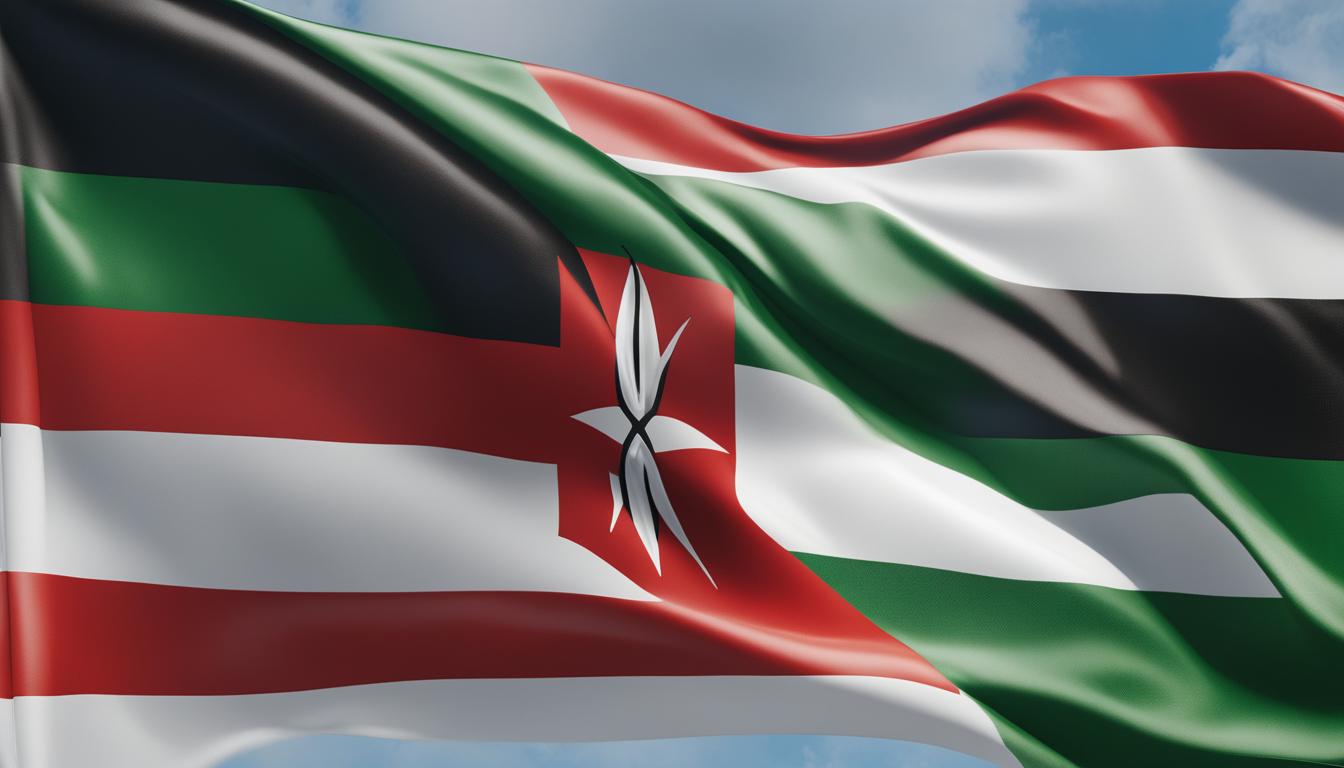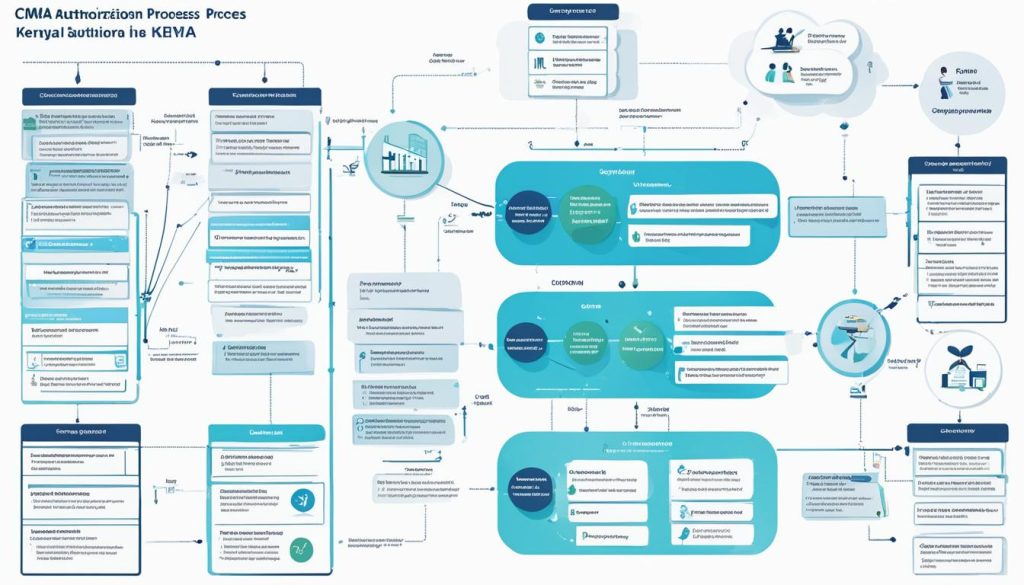The world of foreign exchange has captivated the interest of investors globally, and Kenya is no exception. A pertinent question that arises among Kenyan citizens interested in this financial venture is: Is forex trading legal in Kenya? The short answer is a definitive yes, though legality comes with stringent guidelines and operational statutes laid out by the country’s regulatory authorities.
In Kenya, forex trading laws stipulate that brokers must align with the directives of the Capital Markets Authority (CMA), the nation’s financial services regulator established to oversee market activities. Although foreign brokers are not mandated by law to obtain CMA authorization, their voluntary compliance is a sign of legitimacy and commitment to the forex trading legality in Kenya. It’s a green light for Kenyan traders seeking reassurance in a market that can sometimes be clouded by uncertainty.
Local investors are increasingly drawn to forex trading, looking to either diversify their portfolios or venture into a new asset class. With this burgeoning interest, the importance of conducting trades through properly licensed platforms cannot be overstated. Working with a CMA-authorized broker serves as a safeguard against potential scams and aligns trader activities with Kenyan financial law, ensuring their foray into forex is both protected and promising.
Understanding the Forex Trading Landscape in Kenya
The forex market in Kenya has emerged as a significant avenue for currency trading, catering to a diverse group of traders with varying levels of experience. As forex trading regulations in Kenya continue to evolve, traders have access to a variety of online brokers, each offering unique advantages and tools tailored to different trading strategies. Whether you are a beginner or a seasoned trader, understanding key market dynamics, such as currency pairs and leverage, is crucial for success in this financial arena.
Is forex trading legal in Kenya? Yes, it is. However, traders must navigate the market with caution, adhering to the oversight provided by regulatory bodies. Engaging in currency exchanges demands not only skill but also a thorough Kenya Forex Brokers Comparison to identify the best platforms that align with individual trading goals and the legal framework established in the country.
- Major Currency Pairs: EUR/USD, USD/JPY, GBP/USD, USD/CHF
- Minor Pairs: EUR/GBP, EUR/AUD, GBP/JPY
- Exotic Pairs: USD/KES, EUR/KES
To support strategic decision-making, traders can utilize comparison tools that dissect the features and performance of various brokers. Key factors to consider include transaction costs, spreads, leverage options, and compliance with local forex regulations. Prudent risk management is also a cornerstone of trading, with traders leveraging stop-loss and take-profit orders to safeguard investments.
| Broker Feature | Beginner-Friendly | Algorithm Trading | Copy Trading |
|---|---|---|---|
| Regulatory Compliance | Yes | Yes | Yes |
| User Interface | Intuitive | Advanced Tools | User-Oriented |
| Leverage Offered | Up to 1:10 | Up to 1:100 | Up to 1:50 |
| Minimum Deposit | Varies | Higher | Varies |
The CMA’s stringent regulations on leverage aim to protect traders from the risks associated with overleveraging in major, minor, and exotic currency trades. Through vigilance and adherence to regulations, Kenyan traders can engage in forex transactions 24 hours a day, tactically navigating through international trading sessions in Tokyo, London, and New York.
In summary, understanding the forex trading landscape in Kenya involves recognizing the legal framework, undertaking broker comparisons, and managing risks effectively. By engaging in this way, Kenyan traders can both protect themselves and optimize their potential for financial success in the dynamic world of forex trading.
Regulatory Environment: The Role of the Capital Markets Authority in Kenya
The Capital Markets Authority (CMA) of Kenya stands as a beacon for ensuring transparency and regulatory compliance in the thriving forex market. It shoulders the critical responsibility of safeguarding the stability and integrity of financial operations within the country, setting the tone for forex trading legality in Kenya. This segment delves into the nuances of the CMA’s oversight and the pivotal role it plays in upholding forex trading regulations in Kenya.
The CMA’s Mandate and Powers
Established under the Capital Markets Act of 1989, the Capital Markets Authority Kenya has been steadfast in its endeavor to regulate and energize the nation’s capital markets. While it extends its governance across various financial instruments, its presence in the forex sector is characterized by diligent licensure issuance and insistence on legal compliance.
How to Verify CMA Authorisation for Forex Brokers
For traders embarking on forex ventures, confirming the CMA authorization of brokers becomes a non-negotiable step. A list provided on the CMA’s official website serves as a key resource in this vetting process. The distinction between regulated and unregulated brokers is stark, emphasizing the importance of selecting a partner that adheres to the Capital Markets Authority Kenya’s guidelines.
Implications of Trading with Non-Regulated Entities
Non-compliance with forex trading regulations in Kenya, particularly trading with non-regulated brokers, invites potential risks that could jeopardize investors’ capital. The CMA’s rigorous course of action against such entities underscores the gravity of this concern. Therefore, it’s not only about legality but also ensuring financial security through compliance with AML standards and sufficiency of operational funds
| CMA Checklist | Details |
|---|---|
| Licensure Verification | Confirm if a forex broker is CMA-licensed through the official CMA website. |
| Compliance with Legal Norms | Check adherence to forex trading regulations, ensuring legal operations in Kenya. |
| AML Standards | Ensure the broker upholds Anti-Money Laundering standards, crucial for large transactions. |
| Operational Capital | A CMA-regulated broker is required to maintain a significant amount of operational capital for security purposes. |
Is Forex Trading Legal in Kenya?
Amidst a dynamic global economy, Kenyans have shown a burgeoning interest in the foreign exchange market. However, a question often arises—is forex trading legal in Kenya? As confirmed by regulatory authorities, forex trading is indeed legal in the nation, provided that traders adhere to the rules laid down by competent bodies. A commendable effort has been made by the Capital Markets Authority (CMA) and the Central Bank of Kenya to ensure a well-supervised forex trading environment, enhancing its legality and operational integrity within the country.
Understanding the legality of forex trading in Kenya is pivotal for anyone looking to enter the market. The path to legally engaging in forex activities begins with selecting a broker that operates under the oversight of the CMA. This not only fortifies the trader’s position within the legal framework but also ensures access to protected and regulated trading practices.
Forex trading regulations in Kenya are designed to safeguard the trader’s interests against potential scams and financial misappropriation. These regulations demand that licensed entities are compliant with stringent Anti-Money Laundering (AML) procedures and maintain a considerable operating capital. This adherence is not merely a legal formality; it’s an effective assurance of trust and transparency in the financial market.
- Verify Broker CMA Authorization: Ensure the brokerage is officially listed with the CMA to guarantee regulatory compliance and financial protection.
- Adherence to AML Procedures: Engage in trading activities with brokers who adhere to recommended AML standards to maintain ethical practices.
- Capital Safeguards: Choose brokers with mandated operational capital to ensure monetary security in your trading endeavors.
In conclusion, participants in forex trading within Kenya are urged to operate within the boundaries of legality. This not only enhances individual financial security but also contributes to the country’s economic stability.
Navigating Forex Trading Platforms and Brokerage Selection
For Kenyan investors eager to tap into the forex market, the brokerage and platform selection bears critical weight on their trading journey. Ensuring compliance with forex trading regulations in Kenya is just the starting point. Traders must dissect various facets encompassing the operation, reliability, and service scope of potential forex brokers. An astute choice melds these considerations with personal trading strategies and goals, creating a backdrop for fruitful forex endeavors.
Key Factors for Selecting a Forex Broker in Kenya
Selecting the best Forex Brokers in Kenya is not trivial. A formidable presence, intuitive interface, transparent cost structure, exemplary customer support, robust educational content, and strict adherence to regulatory statutes hallmark excellence in brokerage. Especially for those stepping into the forex arena, the brokerage firm’s reputation and commitment to investor education can significantly demystify the complexities of currency trading, fostering a constructive learning curve.
Broker Regulation and Its Importance for Trader Security
The Capital Markets Authority (CMA) stands as a staunch proponent of investor protection, driving a regulatory framework that instills confidence and upholds the forex trading legality in Kenya. From mandates like segregated client funds to transparent order execution, these measures are not niceties but necessities for secure and ethical trading practices. Hence, a CMA-regulated broker is not just a recommendation—it’s a cornerstone for secure investments in forex trading.
Comparing Top Forex Brokers Available to Kenyans
When sifting through the myriad brokers that open their doors to Kenyans, systematic comparison springs as pivotal. Trader feedback, competitive spreads, accessible minimum deposit requirements, and comprehensive assessments are instrumental in pinpointing a fitting brokerage. Esteemed platforms such as IG and FOREX.com continue to draw attention for aligning aptly with Kenya’s stringent forex market standards, offering traders a reliable passage to global currency exchanges.
FAQ
Yes, forex trading is legal in Kenya and is growing in popularity. However, it is important to engage with brokers who are authorized by the Capital Markets Authority (CMA) to ensure adherence to local laws and regulations.
The CMA is the financial regulator in Kenya responsible for supervising the capital markets, including forex trading. It ensures that market intermediaries like forex brokers operate within the legal and regulatory framework, thereby protecting investors and promoting market integrity.






